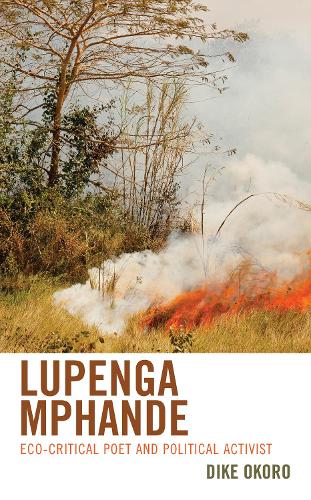
Lupenga Mphande: Eco-Critical Poet and Political Activist
(Hardback)
Publishing Details
Lupenga Mphande: Eco-Critical Poet and Political Activist
By (Author) Dike Okoro
Bloomsbury Publishing PLC
Lexington Books
26th April 2021
United States
Classifications
Professional and Scholarly
Non Fiction
Literary studies: poetry and poets
821.914
Physical Properties
Hardback
244
Width 163mm, Height 227mm, Spine 24mm
549g
Description
Dike Okoro analyzes the various manifestations of ecocriticism and political activism in the poetry of Lupenga Mphande, who was arguably Africa's first poet to explore the existence of territorial cults and natural shrines in his work. This book is recommended for students and scholars seeking new interpretations of the African experience in contemporary world literature.
Reviews
African poetry is one of the most neglected areas of scholarship on the continent and among Africans in the diaspora. This is not for a lack of good material. Whatever the reason for this oversight, we are happy that Okoro has undertaken a giant step toward remedying the condition. His scholarship on the poetry of Lupenga Mphande, one of the most profound and environmentally conscious of African poets, is more than welcome. Mphande is important not only as a fine poet but especially for bringing much-needed attention to social and environmental justice and human rights in African scholarship. This bookis a welcome addition to the scholarship on African poetry and environmental justice. Students of environmental justice--and everyone else--will be delighted to read it.
--Chielozona Eze, Northeastern Illinois University; author of Justice and Human Rights in the African Imagination: We, Too, Are HumansDike Okoro's Lupenga Mphande: Eco-Critical Poet and Political Activist is a groundbreaking critical study of African poetry from a fresh perspective that brings us in conversation with a poet we otherwise would not have understood. Okoro's expertise in approaching Mphande's poetry--through both interviews and a comparative study of the poet and the works of his contemporaries--guides the reader to an understanding of one of Africa's finest poets who deserves more attention than has been given him through the years. This book opens us up to the diverse themes of Mphande's poetics, not often a subject of conversation in the study of African poetry.
--Patricia Jabbeh Wesley, Penn State University AltoonaAuthor Bio
Dike Okoro is associate professor of English and Chair of the Humanities Department at Harris Stowe State University
